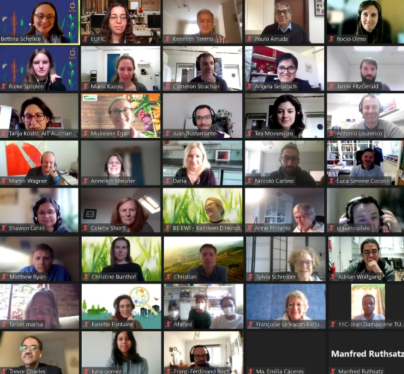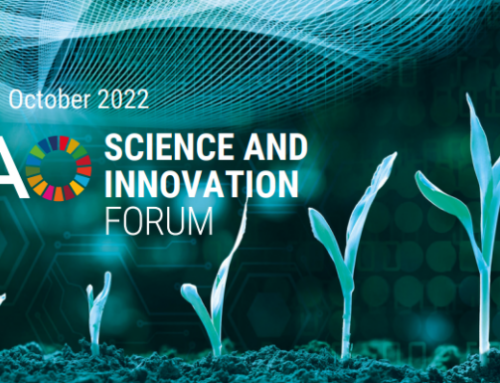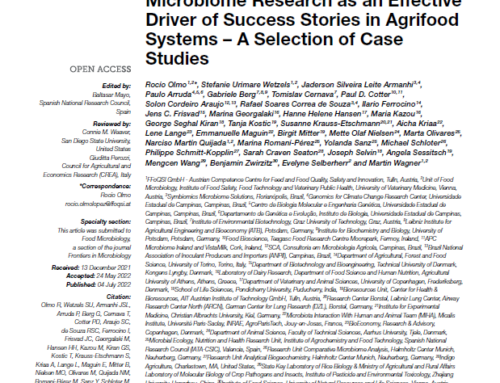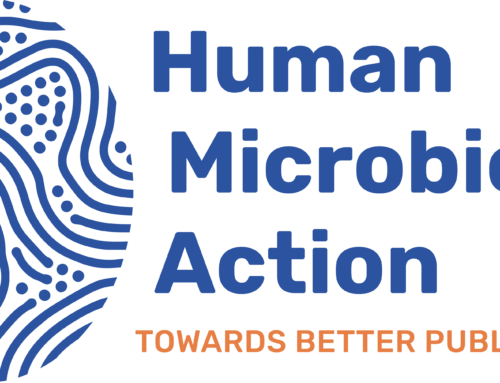The MicrobiomeSupport Workshop on the topic of Educational Needs in Microbiome Research, was held on the 11 and 12 October in a virtual gathering, and was reported live under the hashtag #MicrobiomeEducation on social media channels.
From representatives of global university and research institutes to MicrobiomeSupport members and companies, the workshop aimed to bring together a broad spectrum of stakeholders to discuss the need for trained personnel in microbiome-related technologies for future microbiome application in the food and bioeconomy sector.

Different target groups including public health authorities, universities, schools and non-academic trainings, companies and industry were addressed during the sessions.
The first session on needs for public health authorities began with Marta Hugas from the European Food Safety Authority. She talked about the impact of microbiomes from a regulatory assessment perspective and outlined the usefulness of complex data in relation to food control and food safety. The next presentation was held by Manfred Ruthsatz from Nutrition+HealthCARE. He addressed the potential of microbiome-based analysis to become a part of individualized public health concepts, and the ways this can be realized. The last talk of the session referred to the urgent need for microbiome literacy in the general public. In his presentation Kenneth Timmis from the Technical University of Braunschweig, talked about the importance of such public awareness on the hot topics like sustainability and evidence-based decision making at all levels.
The second session on needs for universities began with Thomas Rattei from the Centre for Microbiology and Environmental Systems Science Vienna. He talked about microbial bioinformatics and how the field is becoming a proper career path in microbiome sciences. Then, academicians from around the globe were welcomed to present their view on the topic. Paulo Arrudo from the State University of Campinas shared his insights on microbiome for food production under global climate changes. Next up was Trevor Charles from the University of Waterloo, who addressed the potential for entrepreneurial activities related to education in food and agricultural microbiomes. Lastly. Luca Cocolin from the University of Turin presented the outcomes from the EIT Food project “MicrobiomePush”, an example for challenge-based education on microbiomes in the food system.
The third session on needs for schools and non-academic trainings began with Daria Rybakova from the Graz University of Technology. She talked about the initiatives that attempt to integrate basic microbiome knowledge in schools. In line with Daria’s talk, Magali Cordillat-Simmons from the Pharmabiotic Research Institute, also stressed on the importance of integrating basic microbiome-related knowledge in non-academic trainings, before students begin their academic careers. The last talk of the session was given by Muireann Egan from the Food Research Programme. She reported on real life case studies from APC Microbiome Ireland about engaging with schools and the general public on microbiome research.
Before the fourth session on needs for companies and industry was opened, Tanja Kostic from the Austrian Institute of Technology, highlighted weaknesses and needs to find a common ground in educational needs. The last session of the workshop began with Colette Shortt from the University of Ulster. In her talk, she spoke about the increasing demand of human resources in microbiome research and the resulting needs from the industry. Michael Ionesco from Lavie Bio then, talked about the resource limitations that the academia faces and the potential for collaboration in public and private funding. Following this topic, Christian Kittel from GmbH ended the last session on the topic of microbiome based innovations, and the complexity and hurdles on the way to its functionality.
The two-day MicrobiomeSupport workshop ended with two parallel roundtables to that brought together speakers and participants. The main topics discussed during these roundtables were the consumer acceptance of microbiome based innovations, and the needs for educational and human resources needs by industry.
Once again, we would like to thank all our speaker for sharing their knowledge and presenting their views on this relevant topic. A big thank you also goes to Bettina Schelkle, Martin Wagner, Maria Kazou, Annelein Meisner and Rocio Olmo who facilitated this workshop and made it happen.











